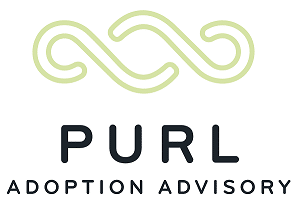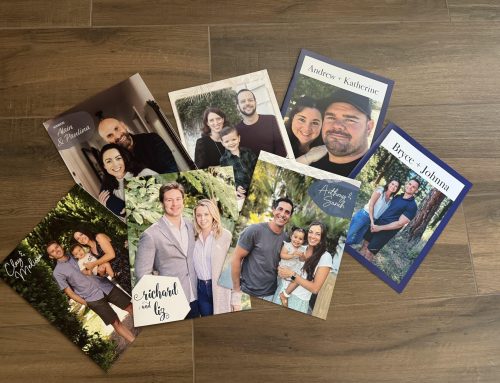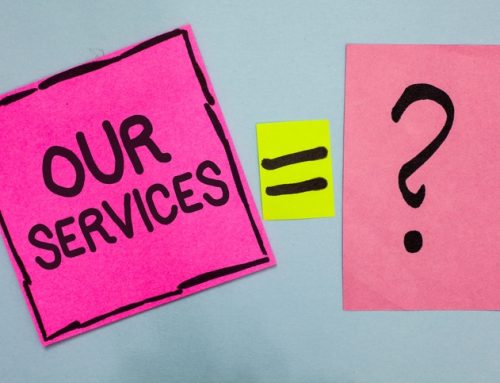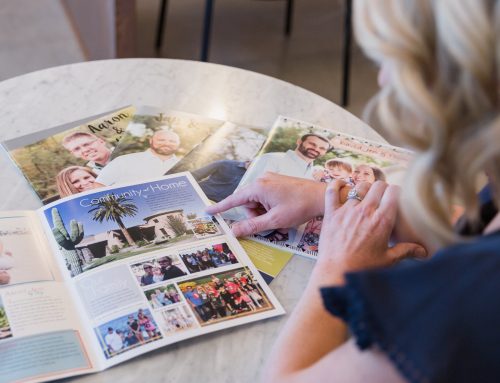
In today’s blog post, advisor Aubrey, delves into common microaggressions adoptees could experience and offers insights on how adoptive parents can proactively equip themselves and their children to navigate these experiences with grace and understanding.
—
Before diving into the topic of microaggressions and the experiences of adoptees, I want to acknowledge a few things: I am a White female: I recognize that this identity comes with its own set of privileges and biases that I continuously work to understand. I am an adoptive mom of 3 Black children: While this gives me a unique perspective, it does not make me an expert on the lived experiences of transracial adoptees or BIPOC communities. I am not an adoptee: My voice should not be seen as representative of the adoptee experience, and I actively encourage those interested in adoption to seek out voices from the adoptee and BIPOC communities. My aim is to shed light on important considerations and issues you may not have thought about as an adoptive or perspective adoptive family.
Adoptees face a unique set of challenges as they navigate through life, one significant issue they often encounter is microaggressions. Microaggressions are subtle, everyday acts of (mostly unintentional) discrimination or bias that can undermine someone’s sense of belonging while perpetuating harmful stereotypes. Click here to listen to a podcast I have personally found interesting. Most adoptees are going to experience these insensitive comments in their lifetime, albeit more commonly in transracial adoptive families. You can read more about navigating transracial adoption here and here. As an adoptive mother who has worried endlessly about the ability to protect my children from the pain associated with their adoption, I can tell you that it is impossible. I have come to the realization that the only way to protect my children is to educate myself and equip my children with the emotional tools to handle these situations and create resilience.
What are microaggressions?
Microaggressions are unintentional or indirect acts that convey derogatory messages, invalidating or marginalizing an individual based on their race, culture, or even their adoption status. Many people may have learned about microaggressions from diversity trainings as it is something experienced by many in BIPOC communities. For adoptees, microaggressions can take various forms, such as insensitive comments, questions that are often driven by curiosity, or even exclusions due to cultural differences. These encounters often leave adoptees feeling misunderstood and isolated.
Common Microaggressions Adoptees Face
“Where are you really from?” – This question assumes adoptees do not belong to the cultural or racial group they reside in, reinforcing the notion that they do not belong.
“You’re so lucky to have been adopted!” – While this is typically well-intentioned, this statement implies that adoptees should be grateful for their adoption, overlooking the complex feelings adoptees may experience, including a sense of loss or the desire to explore their birth culture. This is also often heard third hand when parents are being told by other adults ‘they’re so lucky to have you’
“Do you know your real parents?” – This question assumes that biological parents are the only “real” parents, disregarding the love, care, and support adoptive parents provide.
“You must be so good at [insert stereotypical skill].” – Someone who says this likely thinks they are giving a compliment, assumptions about a person’s abilities or interests based on their race or culture is undermining their individuality.
It’s worth noting in many cultures coping mechanisms to certain more common racial microaggressions and unconscious biases are often taught by biological parents who have had similar relatable experiences, and adoptive parents may need to be extra alert, sensitive, and aware of comments made around young ears even if they have the best of intents.
Tips on How to Respond to Microaggressions
It is important to be mindful and balanced when addressing the issue while using respectful dialogue. Stay calm. It is not an easy thing to do as you may feel defensive, and you’re often caught off guard because microaggressions typically come out of nowhere, from people that have good intentions. Keep in mind that not all situations warrant a response, so choose your battles, if you believe the situation could quickly escalate, it may be best to leave it alone. Also be aware of your audience, understand what you say is more impactful on your child than anything someone else can say.
-Educate Yourself: As an adoptive parent, it is crucial to educate yourself about the unique experiences and challenges faced by adoptees. Familiarize yourself with the concept of microaggressions and understand their impact on your child’s well-being. Make it a priority to teach your child to be resilient to overcome adversity.
-Open Dialogue: Encourage open and honest conversations with your child about their experiences. Create a safe space where they can freely express their feelings and concerns, knowing they will be heard and validated.
-Validate Feelings: When your child encounters microaggressions, validate their emotions and make sure to let them know that their feelings are valid. Reassure them that it is not their fault and that they have the right to feel hurt or frustrated by these experiences.
-Empowerment through Knowledge: Equip your child with knowledge and understanding about their own cultural background and adoption journey. This can help them develop a strong sense of identity and resilience in the face of microaggressions.
-Teach Assertiveness: Help your child develop assertiveness skills to handle microaggressions effectively. Encourage them to calmly and confidently respond to inappropriate comments or questions; setting boundaries and educating others about their experiences as an adoptee.
-Advocate for Change: As an adoptive parent, advocate for inclusive practices and education within your community and schools. Engage in conversations with educators, community leaders, and other parents to raise awareness about adoption-related issues and promote acceptance and understanding.
-Seek Support: Connect with support groups or organizations that focus on adoptive parenting and adoptee experiences. Sharing experiences, insights, and resources with other families can be valuable in navigating microaggressions and strengthening your support network.
–Celebrate Diversity: Embrace and celebrate diversity within your family. Expose your child to their birth culture through books, movies, music, and cultural events. This helps them develop a positive self-image and fosters a sense of belonging.
From personal experience, I must say the most difficult part is that these situations present themselves at the most unexpected times. My husband and I have been in situations where we were simply astonished, the shock of something someone said has left us speechless. In these occurrences we have stressed and thought about what we ‘should have said/done’ and while reviewing a better way to handle the situation is good, know that you are going to make mistakes, this is a lifetime commitment, and it will take time. Despite the challenges and unpredictability of these situations, it is important to remember that making mistakes is part of the learning process in a lifelong commitment. With time and reflection, it will become easier.
If you are interested in adoption and would like to schedule a free consultation, please click here!

In today’s blog post, advisor Aubrey, delves into common microaggressions adoptees could experience and offers insights on how adoptive parents can proactively equip themselves and their children to navigate these experiences with grace and understanding.
—
Before diving into the topic of microaggressions and the experiences of adoptees, I want to acknowledge a few things: I am a White female: I recognize that this identity comes with its own set of privileges and biases that I continuously work to understand. I am an adoptive mom of 3 Black children: While this gives me a unique perspective, it does not make me an expert on the lived experiences of transracial adoptees or BIPOC communities. I am not an adoptee: My voice should not be seen as representative of the adoptee experience, and I actively encourage those interested in adoption to seek out voices from the adoptee and BIPOC communities. My aim is to shed light on important considerations and issues you may not have thought about as an adoptive or perspective adoptive family.
Adoptees face a unique set of challenges as they navigate through life, one significant issue they often encounter is microaggressions. Microaggressions are subtle, everyday acts of (mostly unintentional) discrimination or bias that can undermine someone’s sense of belonging while perpetuating harmful stereotypes. Click here to listen to a podcast I have personally found interesting. Most adoptees are going to experience these insensitive comments in their lifetime, albeit more commonly in transracial adoptive families. You can read more about navigating transracial adoption here and here. As an adoptive mother who has worried endlessly about the ability to protect my children from the pain associated with their adoption, I can tell you that it is impossible. I have come to the realization that the only way to protect my children is to educate myself and equip my children with the emotional tools to handle these situations and create resilience.
What are microaggressions?
Microaggressions are unintentional or indirect acts that convey derogatory messages, invalidating or marginalizing an individual based on their race, culture, or even their adoption status. Many people may have learned about microaggressions from diversity trainings as it is something experienced by many in BIPOC communities. For adoptees, microaggressions can take various forms, such as insensitive comments, questions that are often driven by curiosity, or even exclusions due to cultural differences. These encounters often leave adoptees feeling misunderstood and isolated.
Common Microaggressions Adoptees Face
“Where are you really from?” – This question assumes adoptees do not belong to the cultural or racial group they reside in, reinforcing the notion that they do not belong.
“You’re so lucky to have been adopted!” – While this is typically well-intentioned, this statement implies that adoptees should be grateful for their adoption, overlooking the complex feelings adoptees may experience, including a sense of loss or the desire to explore their birth culture. This is also often heard third hand when parents are being told by other adults ‘they’re so lucky to have you’
“Do you know your real parents?” – This question assumes that biological parents are the only “real” parents, disregarding the love, care, and support adoptive parents provide.
“You must be so good at [insert stereotypical skill].” – Someone who says this likely thinks they are giving a compliment, assumptions about a person’s abilities or interests based on their race or culture is undermining their individuality.
It’s worth noting in many cultures coping mechanisms to certain more common racial microaggressions and unconscious biases are often taught by biological parents who have had similar relatable experiences, and adoptive parents may need to be extra alert, sensitive, and aware of comments made around young ears even if they have the best of intents.
Tips on How to Respond to Microaggressions
It is important to be mindful and balanced when addressing the issue while using respectful dialogue. Stay calm. It is not an easy thing to do as you may feel defensive, and you’re often caught off guard because microaggressions typically come out of nowhere, from people that have good intentions. Keep in mind that not all situations warrant a response, so choose your battles, if you believe the situation could quickly escalate, it may be best to leave it alone. Also be aware of your audience, understand what you say is more impactful on your child than anything someone else can say.
-Educate Yourself: As an adoptive parent, it is crucial to educate yourself about the unique experiences and challenges faced by adoptees. Familiarize yourself with the concept of microaggressions and understand their impact on your child’s well-being. Make it a priority to teach your child to be resilient to overcome adversity.
-Open Dialogue: Encourage open and honest conversations with your child about their experiences. Create a safe space where they can freely express their feelings and concerns, knowing they will be heard and validated.
-Validate Feelings: When your child encounters microaggressions, validate their emotions and make sure to let them know that their feelings are valid. Reassure them that it is not their fault and that they have the right to feel hurt or frustrated by these experiences.
-Empowerment through Knowledge: Equip your child with knowledge and understanding about their own cultural background and adoption journey. This can help them develop a strong sense of identity and resilience in the face of microaggressions.
-Teach Assertiveness: Help your child develop assertiveness skills to handle microaggressions effectively. Encourage them to calmly and confidently respond to inappropriate comments or questions; setting boundaries and educating others about their experiences as an adoptee.
-Advocate for Change: As an adoptive parent, advocate for inclusive practices and education within your community and schools. Engage in conversations with educators, community leaders, and other parents to raise awareness about adoption-related issues and promote acceptance and understanding.
-Seek Support: Connect with support groups or organizations that focus on adoptive parenting and adoptee experiences. Sharing experiences, insights, and resources with other families can be valuable in navigating microaggressions and strengthening your support network.
–Celebrate Diversity: Embrace and celebrate diversity within your family. Expose your child to their birth culture through books, movies, music, and cultural events. This helps them develop a positive self-image and fosters a sense of belonging.
From personal experience, I must say the most difficult part is that these situations present themselves at the most unexpected times. My husband and I have been in situations where we were simply astonished, the shock of something someone said has left us speechless. In these occurrences we have stressed and thought about what we ‘should have said/done’ and while reviewing a better way to handle the situation is good, know that you are going to make mistakes, this is a lifetime commitment, and it will take time. Despite the challenges and unpredictability of these situations, it is important to remember that making mistakes is part of the learning process in a lifelong commitment. With time and reflection, it will become easier.
If you are interested in adoption and would like to schedule a free consultation, please click here!



